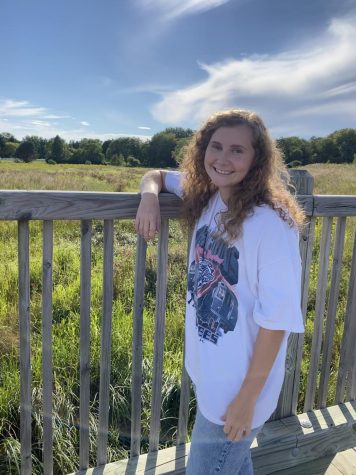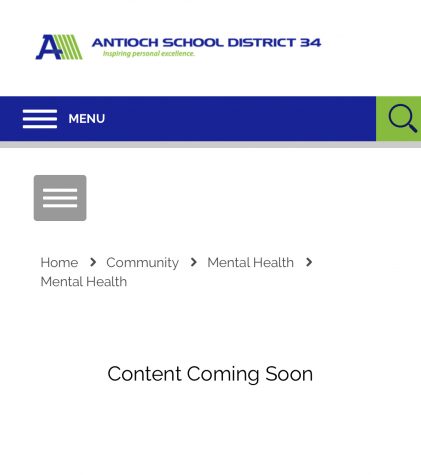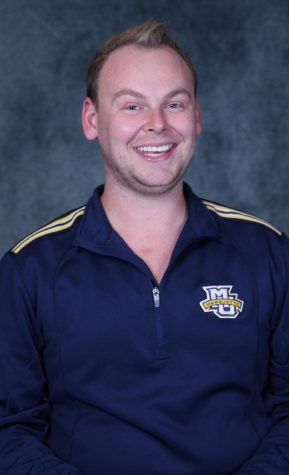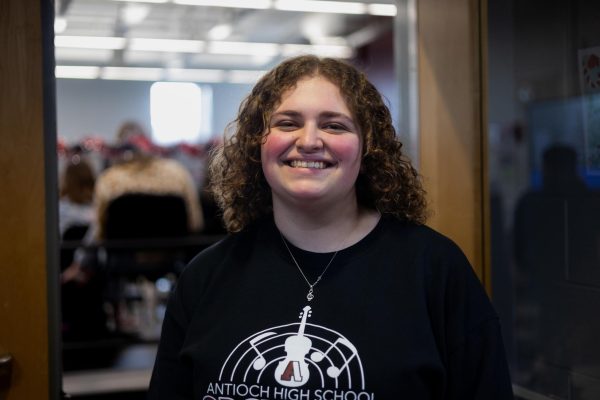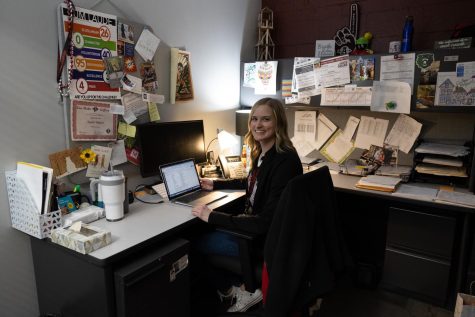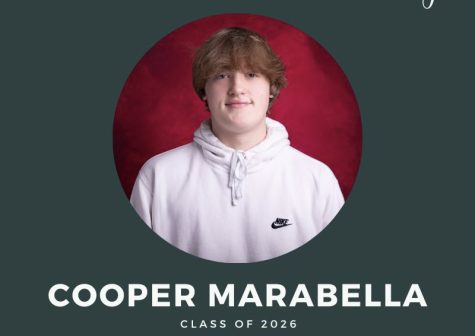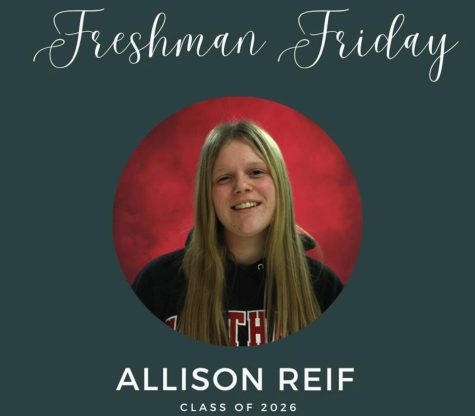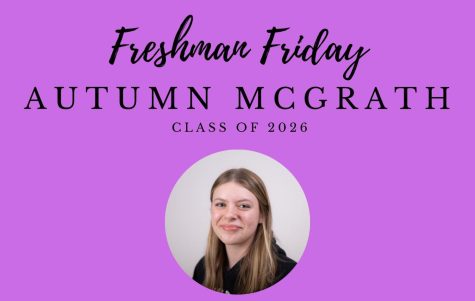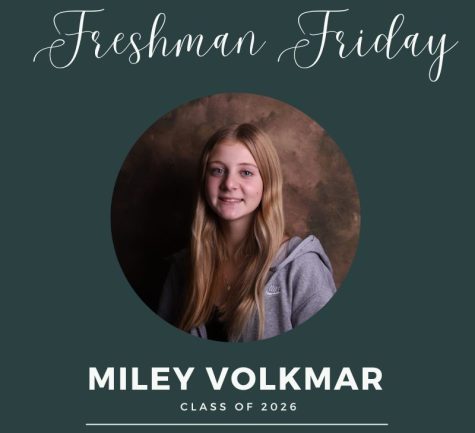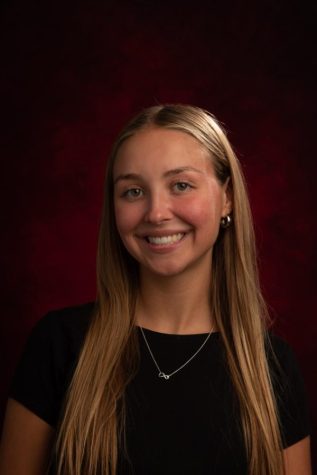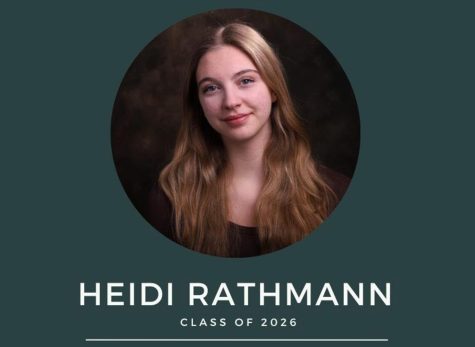What I’ve Learned
He’s called District 117 home for the past seven years. Now, Brad Hubbard will officially take up residence in District 34.
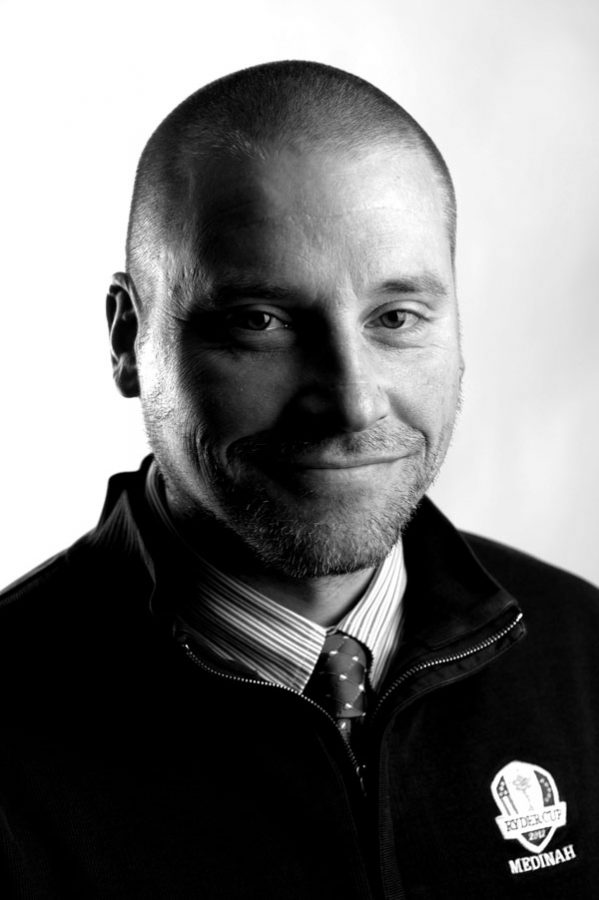
Hubbard will serve as the District 34 Superintendent, starting on July 1, 2020. Hubbard is excited to learn what it is like to work with younger children in D34. Throughout his past seven years working in District 117, Hubbard has learned a lot about what it means to be a leader.
The number seven might as well be Assistant Superintendent of Curriculum and Instruction, Bradford Hubbard’s lucky number. The indescribable feeling of seven yes’s has given Superintendent Bradford Hubbard the experience of a lifetime. After years of hard work and preparation, his dreams of being a superintendent has now become his new reality. Hubbard has spent the past seven years working in District 117 first as the principal of ACHS and, most recently, as the Assistant Superintendent of Curriculum and Instruction. During the District 34 board meeting on January 21, Hubbard was officially announced as the new D34 superintendent. The big question: what has Hubbard learned while working in District 117 for the past seven years.
The night of the board meeting was something that I’ll never forget. I walked in and they had a cake that said, “welcome to District 34, Dr. Hubbard.” At that moment it started to become real. It was really a great opportunity for me because my wife and my two daughters came with me. One of the board members made the motion to approve my contract and then there was a second. As they went through and called by name each of the seven board members and they voted yes or no, my eight year old daughter put her arm around me and I could feel her patting my back with every yay that the board said. It was this surreal moment where people were voting on me as their future leader, and I could feel the pride.
I’ve learned a lot about myself. I think first and foremost I’ve really come to grips and deep understanding of what my why is in terms of why I’m in education to begin with. Being the father of two daughters I know and I’ve come to realize that the only way that I can ensure that they’re going to be part of a truly equitable system is to relentlessly fight for one that meets the needs of all students in order for my own kids to be included. I’ve come to realize I have to fight for a system that identifies [and] meets the needs of all kids. That’s something that I’ve really started to focus on over the course of the last seven years. I feel like I’ve become more confident in my leadership abilities, and I’ve become more understanding of myself in terms of my leadership style. I would describe my leadership style as relational. I really try to forge strong authentic and genuine relationships with the people that I serve: the students, the staff and the community. There’s this other piece that’s newer for me, but it’s this idea of leading with confident vulnerability, sharing what it is that I don’t know and what I need help with. I’ve become more comfortable in that over the course of the last seven years.
One of the valuable lessons that I’ve learned is I think it’s really important for leaders to lead with both their heads and their hearts. There are times where emotions get the best of me and I make a decision and that’s not always the best decision. There are other times that I strictly rely on policy or data to make a decision and that’s not always the best answer either. I think it’s really important for leaders to utilize their heads and their hearts in decision making. Those times are lessons and learning opportunities for me to reflect upon and to become more comfortable in taking time and making decisions, making sure that you’re listening and understanding things from multiple perspectives.
I think the most important lesson is this idea that parents, guardians are sending us their most precious resource. Every day we put our girls on a bus and they go to school, and we are instilling an enormous amount of trust into where they’re going and who they’re interacting with. I think it’s really important that we look at the decisions that we make, the impact that we have, the systems that we’re creating through the lens of what are the expectations of our communities and our families.
Communication is huge, I think without a communication plan that people feel like they are a part of and are contributing to. That’s when teams aren’t functioning well. This place is crawling with highly successful engaged and passionate people who care about the right things. What we’ve tried to do is build authentic relationships with each other so that we see each other not only as colleagues, but friends and partners. So we’ve tried to build strong relationships and then just keep the lines of communication open.
What motivates me to constantly push myself? This idea that I think the work is never done, you never have good enough relationships. I think there’s this idea that you have to constantly be reflecting and improving upon practice. The biggest thing for me is that we’re treating every student as though they’re our own. The other is no matter what metric we’re using to identify or monitor our progress toward what we define as success, there are students that are ultimately always struggling. We need to constantly be fighting to identify who those students are and forge relationships with them that will have a positive impact on their futures. The work is never done because there’s always somebody that needs a better relationship, a greater opportunity, a better connection with an adult or appears to be able to do what it is that they’re here to do.
The obvious [question] that I was asked throughout the interview process was all of my experiences are at the high school level. And so, taking over a district that serves pre K through 8 students I have an awful lot to learn about what it means to be a gifted student in third grade or a struggling reader in first grade. I think I have a lot to learn about the teaching and learning that happens in the classrooms at the elementary level and I’m eager to start to learn what that means. What are the responsibilities? What are the things that we need to be asking and trying to answer in terms of meeting the needs of students?
I’m beyond excited. You know the reason that I was so interested in the position was it allows me to continue to serve in these communities that I’ve grown to absolutely love and adore. When I came in as principal of Antioch High School seven years ago, with me I brought two little girls and an entire community embraced them as their own kids. I immediately knew that I had found a new home professionally. As I’ve continued to serve for the last seven years as this opportunity presented itself, [it was always] a dream of mint. To be able to do it in these communities in which I feel like we have this perfect confluence of dedicated staff, incredible students and this super supportive trusting community, I was beyond excited. I’m excited to see what kind of impact I can have, but more importantly what type of culture and climate we can create collectively. The impact that we have at District 34 ultimately will in turn impact what were sending, providing and supporting in terms of District 117.
What is one piece of advice that I give to the next Assistant Superintendent that’ll fill my position here… I think to continue to try to have an impact here, this is an incredible district where we try to ensure everybody has a voice and has an opportunity to have an impact. Regardless of what that next person’s personal why is, I think it’s important that they become comfortable in sharing what that why is that it allows for some inroads in terms of creating relationships with people.
What is a mantra that I follow when working? My biggest one is make it matter, and that is on these challenge coins that I hand out. It’s a quote that came from a former chairman of the Joint Chiefs of Staff, General Dempsey who has on his desk, a wooden box and inscribed on top of the box of the words making matter. Inside of the box are the laminated pictures of 132 service members that lost their lives under his supervision in Iraq and Afghanistan. I’ve never been in the military, and I’ve never tried to draw comparisons between what we do in education; but if I were to draw a parallel, I would argue that it would be the pictures of the students that feel invisible, that feel like they don’t have a positive connection, that feel like they have no opportunity to succeed, access to the programming or the support that they need. Those are the students who remind me daily of why I’m doing what I’m doing.
